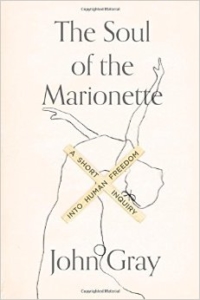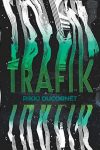The uneasy relationship between philosophers and the public takes its roots from the beginning of each, and has led many thinkers to retreat from the public and do their thinking (when they could help it) only among the like-minded. Socrates sought out those whom he thought were most suited to his brand of philosophizing, that is, young, aristocratic men. It didn’t save him from public scorn, nor did it spare his life, but it did secure his legacy and, with it, that of philosophy. Closer to us in time, Nietzsche went further, claiming that his masterpiece, Thus Spoke Zarathustra was a book “for none and for all,” and, in Ecce Homo, that he did his best thinking, “among ice and high mountains.” Neither phrase strikes a particularly pleasant note as regards community life. Most philosophers range somewhere between these two, from Heraclitus’ gnomic phrases to Hegel’s extremely dense Phenomenology of Spirit and Science of Logic to the more accessible but still difficult commentaries on Plato and Aristotle by Muslim thinkers like Averroes and Al-Farrabi.
It has really only been since the Enlightenment that a brand of philosophers have tried to make their thought both accessible to and applicable by a wider range of the public, beginning both with Machiavelli’s instructions to his Prince and Descartes and Bacon’s exhortations to make knowledge “work,” as well as the social contractarians like Hobbes and Locke. I’m necessarily painting with a broad brush here, but the cause of these thinkers’ more publicly-minded approach was the belief in human progress and, behind it, a very sanguine view of human freedom. Simply put, for these philosophers all that held humankind back from actualizing its material and spiritual potential was the lack of methodological and technological apparatus. This apparatus has never been supplied because philosophers have never been interested in providing it. As Marx succinctly put it in his Eleven Theses on Feuerbach, “philosophers have only been interested in interpreting the world, in various ways. The point, however, is to change it.” Our own time, with its ever-increasing demands for political equity and technological prowess, reflects a similar belief in what can be accomplished for everyone if only a very good mind is set to it.
I’m rehearsing this little history lesson because it shows what a strange position John Gray puts himself in, and perhaps points to why his books themselves are so strange. There have been many, many philosophical critiques of this belief in progress, but most have ranged between Socrates and Nietzsche in their public engagement: the Romantics, such as Schelling or the brothers Schlegel, Heidegger, Strauss, Derrida, and many more still. Whatever their fame, these were not public thinkers. John Gray is a public thinker, and his project is to push in the exact opposite direction of what brought philosophers out of the ivory tower in the first place. In The Soul of the Marionette, he tries to tell a public devoted to unlimited human freedom that it is radically and, perhaps perilously, mistaken.
He performs this task with the panache he has become known for. Through a sometimes mind-bogglingly diverse range of poets, essayists, religious thinkers, and philosophers, Gray reveals the ostensibly hidden origin of modern Enlightenment scheming for human progress in the early rival of Christianity (who, according to the Borges’ epigram which begins the chapter, “annihilated” them), the murky, somewhat mystical faith of Gnosticism. It is a rather fascinating story.
He introduces the faith by way of a story by Heinrich von Kleist, called, “On the Puppet Theater.” The narrator is unable to understand his friend, a dancer, who envies the marionettes they are watching, puzzlingly, for their freedom. The friend suggests the narrator read “the third chapter of Genesis attentively.” He is referring, Gray tells us, to the Gnostic faith, which gives substantial pride of place to the book of Genesis as both origin story and moral guide.
The short version (which, notably, is the version Gray gives) is that the Original Sin of Adam and Eve is, at root, not a sin, since the God who forbade the eating of the fruit was not the Creator-God, but an evil replacement who, following the mysterious departure of the true God, set up the Garden of Eden as a blissful prison. In this scenario, the serpent is the agent of the good and the true. Now that we have been cast, as Gray puts it, “into the dim of everyday consciousness,” we might gain access to the truth of the cosmos by power of mind: “Gnostic” comes from the Greek gnosis, meaning knowledge. By the strange alchemy of historical progression (not progress), the Gnostic vision of escape from this world and the creation of a new one via the power of free human thought became the dominant one, though wrapped in the garb of its Christian conquerors and the subsequent (and, to Gray, consequent) scientific rationalism.
The trouble with this view is largely a practical one, though, in Gray’s view, it rests on a theoretical one. He contends that humankind is and has proven itself simply inept in the task of self-knowledge. Bound by natural laws and ultimately driven by petty impulses, the kind of self-empowerment demanded by the Gnostic view is a fantasy, but one which nevertheless holds sway over the minds of more exceptional persons who then attempt to guide the world by it. The culprits here are men like Newton and Descartes who enjoin humankind to emancipate itself by way of their scientific method. And humankind has largely done so. And while Gray has in the past acceded that anesthetic was a nice invention, comfortable medical procedures are not worth the coming threat of machines smarter and more dangerous than ourselves. The solution? Look elsewhere: John Gray is here to tell you that the best you can hope for is self-recognition as the marionette that you are.
He tells this story as just that: a story. It can, at times, come off as a bit hurried, not to say handwavy. The first ten pages refer to Kleist, Kepler, Stoicism, Daoism, the Bible, the Christian struggle for dominance of Greco-Roman paganism, and Zoroastrianism. It can feel a bit much, particularly for a book subtitled, “A Short Inquiry into Human Freedom.” Gray’s topic is a difficult one, and it is made even more difficult by having an audience of variant levels of general knowledge, never mind expertise. This, I would suggest, is the central issue with Gray’s books, and The Soul of the Marionette particularly: it is simply not clear who he is talking to.
Gray took a long time in approaching the larger reading populace. His long career in academia, which included posts at Oxford, Harvard, and the London School of Economics, was spent largely on the minutiae of contemporary political philosophy, writing such books as Mill on Liberty: A Defence (1981), and Postliberalism: Studies in Political Thought (1993). He became known a staunch critic of John Rawls, whose Theory of Justice presents a modern, inclusive version of the Enlightenment social contract. Toward the end of his university life, his interests expanded and, with them, his audience. Beginning roughly with False Dawn: Delusions of Global Capitalism, Gray has sought to express in non-academic terms his virulent and increasingly dark vision of mankind, with a particular vendetta against the liberal humanism which has dominated the West for centuries. In that book, Gray claims that both failed communism of the East and the “successful” capitalism of the West are equal partners in the project of Enlightenment, neither of which is capable of providing a suitable frame for human life. Add to this decreasing natural resources and increasing market volatility, and the future looks distinctly grim.
Gray has been the subject of a great deal of praise, from novelist Will Self to philanthropist George Soros to environmental scientist James Lovelock. John Banville, in reviewing Soul of the Marionette for the Guardian, called Gray a “magpie genius.” But he has also borne a great deal of extremely, perhaps even excessively, harsh criticism, most notably from two similarly popular academics, A.C. Grayling and Terry Eagleton. Grayling, a defender of the humanism Gray sees as so foolish, began a review of Gray’s Black Mass with this: “John Gray is a curious figure whose habitual assaults on humanism are all carried along with such breezy assertion and generalisation that his underlying bitter pessimism is cloaked in motley.” Eagleton, meanwhile, has a greater appreciation of Gray’s natural talents, though he shares with Grayling a low opinion of Gray’s weltanschauung. Writing in response to Straw Dogs, the first book in which Gray presented his unadulterated opinion of humanity, Eagleton said: “This is a tragic condition, but not a nihilistic one. But Gray does not want to hear of human value, which would wreck his sensationalist case. He wants to hear that human beings are garbage, plague and poison, a rapacious species that is ‘not obviously worth preserving’.”
It’s hard to deny Eagleton’s diagnosis. Whatever Gray’s talents for rhetoric, one gets the sense that he tells stories not to reach more people, but because he doesn’t think people are worth explaining things to. But then why write for popular outlets? Could it be that Gray is battling the same force he denounces, namely the desire to enlighten others? However dark his understanding of the truth may be, he seems intent on getting others to believe it, or, at least, part of him does. It is likely that he simply found himself built, as so many do, for argument and conversation. It’s never been clear to me what those who believe human beings are determined by biology, genealogy, etc., actually make of things like the desire to explain, or to argue. Perhaps Gray would answer that he writes simply because he is not free to abstain from it.
Jack Hanson is contributing editor at Partisan. His writing has appeared or is forthcoming in Bookslut, Clarion, Full Stop, Open Letters Monthly, Partisan, Toe Good Poetry, and The Quarterly Conversation. Born and raised on Cape Cod, he now lives in Chicago.
This post may contain affiliate links.








